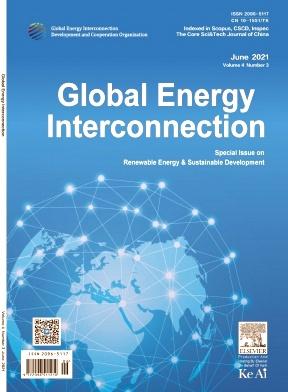Fuzzy multi-criteria decision-making method-based operational assessment of Chinese electricity markets
IF 1.9
Q4 ENERGY & FUELS
引用次数: 0
Abstract
The evaluation of the electricity market is crucial for fostering market construction and development. An accurate assessment of the electricity market reveals developmental trends, identifies operational issues, and contributes to stable and healthy market growth. This study investigated the characteristics of electricity markets in different provinces and synthesized a comprehensive set of evaluation indicators to assess market effectiveness. The evaluation framework, comprising nine indicators organized into two tiers, was constructed based on three aspects: market design, market efficiency, and developmental coordination. Furthermore, a novel fuzzy multi-criteria decision-making evaluation model for electricity market performance was developed based on the Fuzzy-BWM and fuzzy COPRAS methodologies. This model aimed to ensure both accuracy and comprehensiveness in market operation assessment. Subsequently, empirical analyses were conducted on four typical provincial-level electricity markets in China. The results indicate that Guangdong’s electricity market performed best because of its effective balance of stakeholder interests and adherence to contractual integrity principles. Zhejiang and Shandong ranked second and third, respectively, whereas Sichuan exhibited the poorest market performance. Sichuan’s electricity market must be improved in terms of market design, such that market players can obtain a fairly competitive environment. The sensitivity analysis of the constructed indicators verified the effectiveness of the evaluation model proposed in this study. Finally, policy recommendations were proposed to facilitate the sustainable development of China’s electricity markets with the objective of transforming them into efficient and secure markets adaptable to the evolution of novel power systems.
基于模糊多准则决策方法的中国电力市场运行评价
电力市场评估是促进电力市场建设和发展的关键。对电力市场的准确评估可以揭示发展趋势,识别运营问题,有助于市场稳定健康发展。本研究考察了各省电力市场的特点,并综合了一套全面的评估指标来评估市场有效性。该评价框架从市场设计、市场效率和发展协调性三个方面构建,包括分为两层的9个指标。在此基础上,基于模糊bwm和模糊COPRAS方法,建立了电力市场绩效的模糊多准则决策评价模型。该模型旨在保证市场运行评估的准确性和全面性。随后,对中国四个典型省级电力市场进行了实证分析。结果表明,广东电力市场表现最好的原因是有效平衡了利益相关者的利益,并遵守了合同诚信原则。浙江和山东分别排名第二和第三,而四川的市场表现最差。四川电力市场必须完善市场设计,使市场主体获得公平竞争的环境。对构建的指标进行敏感性分析,验证了本研究提出的评价模型的有效性。最后,提出了促进中国电力市场可持续发展的政策建议,目标是将其转变为适应新型电力系统发展的高效、安全的市场。
本文章由计算机程序翻译,如有差异,请以英文原文为准。
求助全文
约1分钟内获得全文
求助全文
来源期刊

Global Energy Interconnection
Engineering-Automotive Engineering
CiteScore
5.70
自引率
0.00%
发文量
985
审稿时长
15 weeks
 求助内容:
求助内容: 应助结果提醒方式:
应助结果提醒方式:


